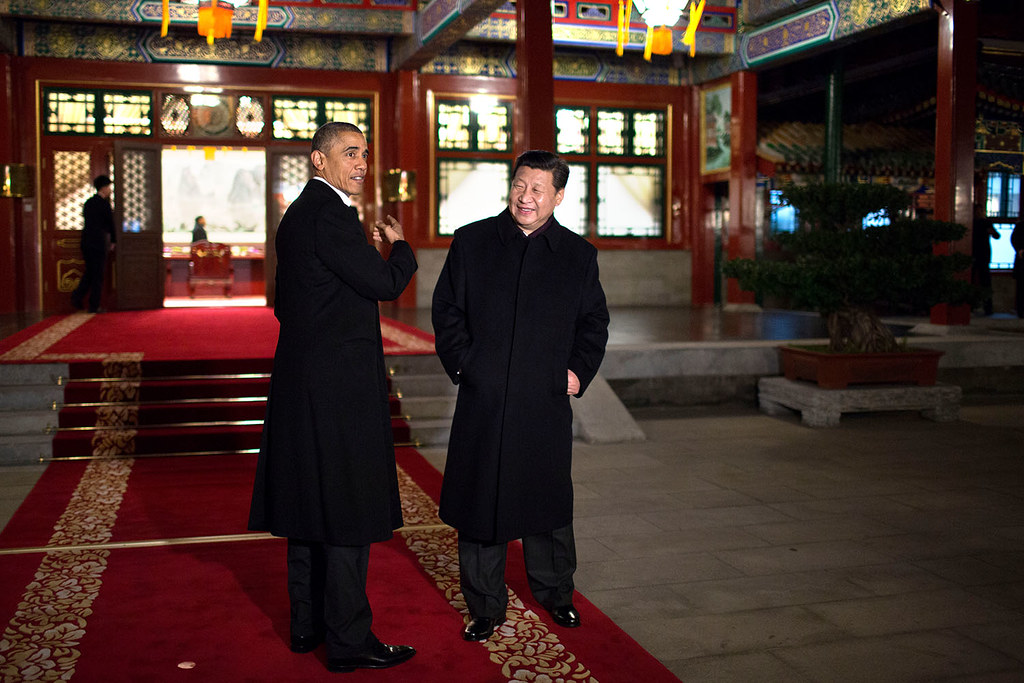 |
| Image: Flickr User - The White House |
By Douglas Paal
The implications for U.S. policy of China’s New Counterbalance in Asia and Taiwan’s election.
Chinese President Xi Jinping is a man in a hurry, presiding over a system that normally resists rapid change. The latest example is a rushed and massive reorganization and slimming of the People’s Liberation Army (PLA), announced on September 3 and expected to be inaugurated, though not completed, as fast as by January 1, 2016.
Ambitions such as this one for the PLA may be part of what lies behind the extraordinary tactical readjustments of Chinese foreign policy over the past year. After two major conferences on Chinese foreign policy presided over by Xi in 2013 and 2014, China’s post-Olympic, post-global financial crisis period of assertiveness toward its neighbors and the United States has morphed since last autumn into fence mending and economic courtship. Some might call it a tactical retreat. I call it a counterbalance to the American rebalance; that is, Beijing’s efforts to reduce opportunities for the U.S. to build influence on China’s periphery.
For example, Beijing has resisted over-reacting to a U.S. freedom of navigation challenge in the South China Sea, coming not long after Xi’s state visit to the U.S. And China has positively responded at least procedurally to a U.S. initiative to combat cyber theft. China muted its “principled” negative reaction to a U.S. arms sales package for Taiwan that was announced in December, after the U.S. sized the package to avoid provocation. Tensions are down with Japan in the waters around the Senkaku/Diaoyu islands in the East China Sea. Xi has swallowed hard and met with Japanese Prime Minister Shinzo Abe twice and permitted Premier Li Keqiang to attend a trilateral with Japan hosted by South Korea.
Moreover, after a surge of land filling in the South China Sea this past summer, Xi has moved to lower diplomatic temperatures, attending the Philippines’ hosted Asia-Pacific Economic Cooperation leaders’ forum in Manila, and avoiding new tensions with Vietnam. Emblematically, the Communist Party graciously hosted Myanmar democratic leader Aung San Suu Kyi in Beijing after decades of giving her a cold shoulder.
Read the full story at The Diplomat
